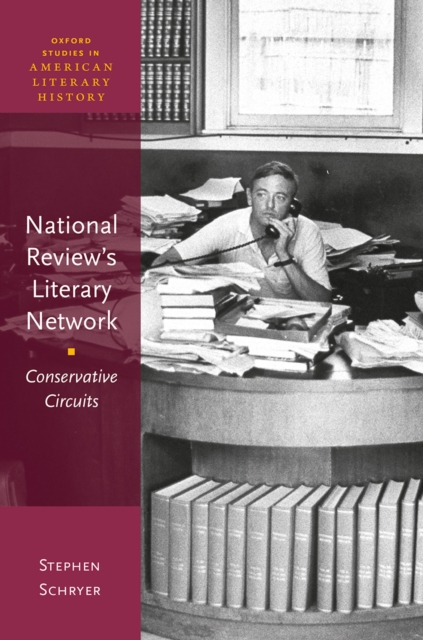
National Review's Literary Network : Conservative Circuits EPUB
by Stephen Schryer
Part of the Oxford Studies in American Literary History series
EPUB
Description
National Review's Literary Network traces the careers of novelists, journalists, and literary critics who wrote for William F.
Buckley, Jr.'s National Review. In the 1950s, the magazine sought to establish itself as a conservative alternative to liberal journals like Partisan Review.
To do so, it needed a robust book review section, featuring nationally recognized writers.
Between the 1950s and the 1980s, Whittaker Chambers, John Dos Passos, Hugh Kenner, Guy Davenport, Joan Didion, Garry Wills, and D.
Keith Mano wrote for the magazine. The magazine boosted their careers and they, in turn, helped make Buckley's version of conservatism respectable.
In the pages of National Review and elsewhere, these writers fashioned a body of literary work that takes up and refracts right-wing concerns about tradition, religion, and personal liberty. Uncovering a neglected part of post-World War II American literary history, Stephen Schryer highlights these writers' enduring impact on movement conservatism.
Believing in the power of intellectuals, Buckley and his fellow editors argued that the academy, the media, and other institutions had been taken over by a liberal establishment that sought to impose its ideas on the nation.
They wanted to establish a network of institutional counter-circuits staffed by conservatives.
The magazine's literary intellectuals contributed to this effort, helping conservatives present themselves as a counter-elite sheltering traditional, humanities-based knowledge within a technocratic welfare state.
In so doing, they facilitated the magazine's assault on the very possibility of expertise, ushering in the fragmented epistemological landscape that has characterized the United States since the late 1960s.
Information
-
Download - Immediately Available
- Format:EPUB
- Pages:208 pages
- Publisher:OUP Oxford
- Publication Date:23/01/2024
- Category:
- ISBN:9780198886228
Other Formats
- PDF from £49.58
Information
-
Download - Immediately Available
- Format:EPUB
- Pages:208 pages
- Publisher:OUP Oxford
- Publication Date:23/01/2024
- Category:
- ISBN:9780198886228










